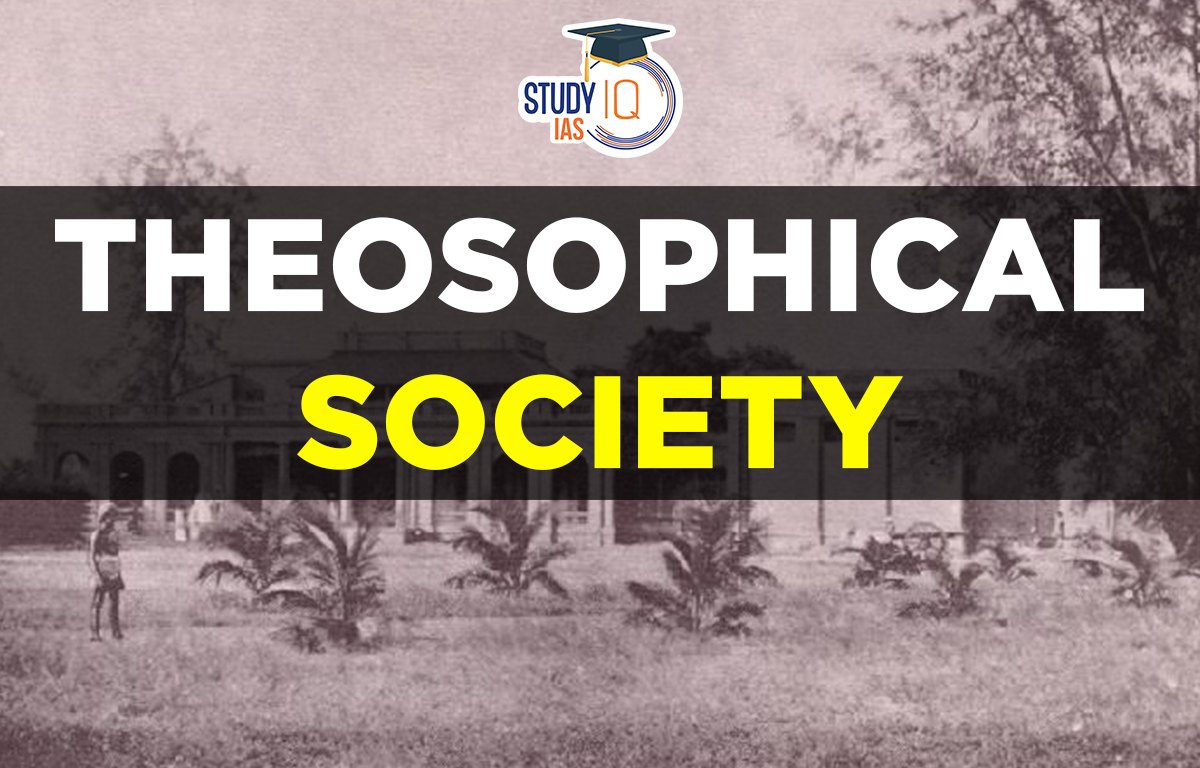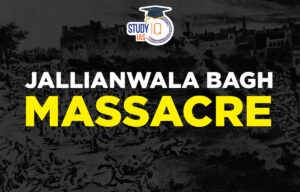Table of Contents
Theosophical Society
Founded in 1875, the Theosophical Society serves as a worldwide body that promotes spiritual advancement with the objective of universal brotherhood without distinction based on the realization that all life, human and non-human, is indivisibly One. The fact that word “Theosophy” in Greek means “Divine Wisdom”.
Read More: Mahatma Gandhi
Theosophical Society Founder
The Theosophical Society was formally established on November 17, 1875, in New York City, New York, by Helena Petrovna Blavatsky, Colonel Henry Steel Olcott, William Quan Judge, and other individuals. In a few years, Olcott and Blavatsky established the International Headquarters at Adyar in Madras (currently Chennai). They did so because they thought that spreading the theosophical movement in India was a good idea.
Read More: Indian National Congress
Theosophical Society in India
When Madame Blavatsky and Colonel Olcott toured India in 1879, they were welcomed everywhere with open arms. This provided the initial framework for the movement in India. Theosophists did the following works in their early years:
- Theosophists discovered that the Hindu Upanishads are a treasure trove of wisdom for discovering absolute truth and divinity.
- It translated and published Hindu scriptures and contributed to India’s intellectual awakening through research on Hindu religious ideas.
- A sense of national pride was instilled in educated Indian youths by the Theosophical Society, giving rise to modern nationalism.
But it was Mrs. Annie Bessant’s leadership that made the movement gain popularity in India. She joined the movement in 1889 and eventually made her way to India at the end of 1893. She took office as Theosophical Society president in 1907.
Read More: Poona Pact
Theosophical Society Annie Besant Role
The following accomplishments of the Theosophical Society under Annie Besant can be summarized as highlights:
- Annie Besant had a keen interest in religion. She demonstrated the superiority of the ancient Hindu civilization while criticizing the western materialistic culture. During that time, she also translated the Gita.
- Annie Besant founded a new boys’ school in Banaras called the Central Hindu College (CHC), which was based on theosophical principles and staffed by a number of well-known theosophists. The college served as the nucleus on which Banaras Hindu University was built in 1916.
- Annie Besant was an outspoken opponent of the social ills that were pervasive in Indian society at the time, such as child marriage and the stigma attached to widow remarriage.
- Annie Besant significantly aided the cause of women’s education.
- She believed that among other things, India needed to develop its national spirit. Together with George Arundale, she established the Home Rule League in 1917. Its goal was to accomplish Home Rule. Numerous congressmen, including Mahatma Gandhi and Bal Gangadhar Tilak, supported this.
Read More: Cripps Mission
Theosophical Society Headquarters
In 1933, Annie Besant passed away. After that, George Arundale carried on with her work. The Theosophical Society’s headquarters are still in Adyar, Chennai.
Theosophical Society & its Shortcomings
- Theosophical Society’s teaching could be understood by educated people and it failed to reach the masses.
- The Association of Theosophical Society with occult practices put a question mark on the scientific temper of its members.
- Most of the social works done by members of the Theosophical society were confined to urban areas.
- The political movement supported by the Theosophical Society was for Home Rule only and not complete independence as the youth of India at that time demanded.
Read More: Charter Act of 1853
Theosophical Society Summary
Theosophical society played a significant role in the Indian Renaissance. It emphasized the depth of Indian religious concepts in the western world. It brought back to life a number of philosophical, occult, religious, and other texts. India’s political and social awakening was greatly aided by its contributions to women’s empowerment and education.
Theosophical Society UPSC
Theosophical Society is a spiritual and mysticism-related society. It was formed in the 1870s in New York and later in the 1890s, its headquarters was set up in Adyar (Chennai) in India. It played a key role in reviving the teachings of many ancient Indian texts including Upanishads, Vedas and also occult texts. Its prominent members like Annie Beasant and George Arundale also played a key role in the Indian National Movement, particularly the Home Rule Movement. Society still functions today and has a large number of members worldwide. Theosophical Society topic is covered in the Modern Indian History Syllabus of the UPSC Examination. For the UPSC Mains exam, this topic is covered in General Studies Paper 1.


 Indus River System, Tributaries, and Sin...
Indus River System, Tributaries, and Sin...
 Jallianwala Bagh Massacre, Date, History...
Jallianwala Bagh Massacre, Date, History...
 Important Lakes of India, State wise and...
Important Lakes of India, State wise and...





















